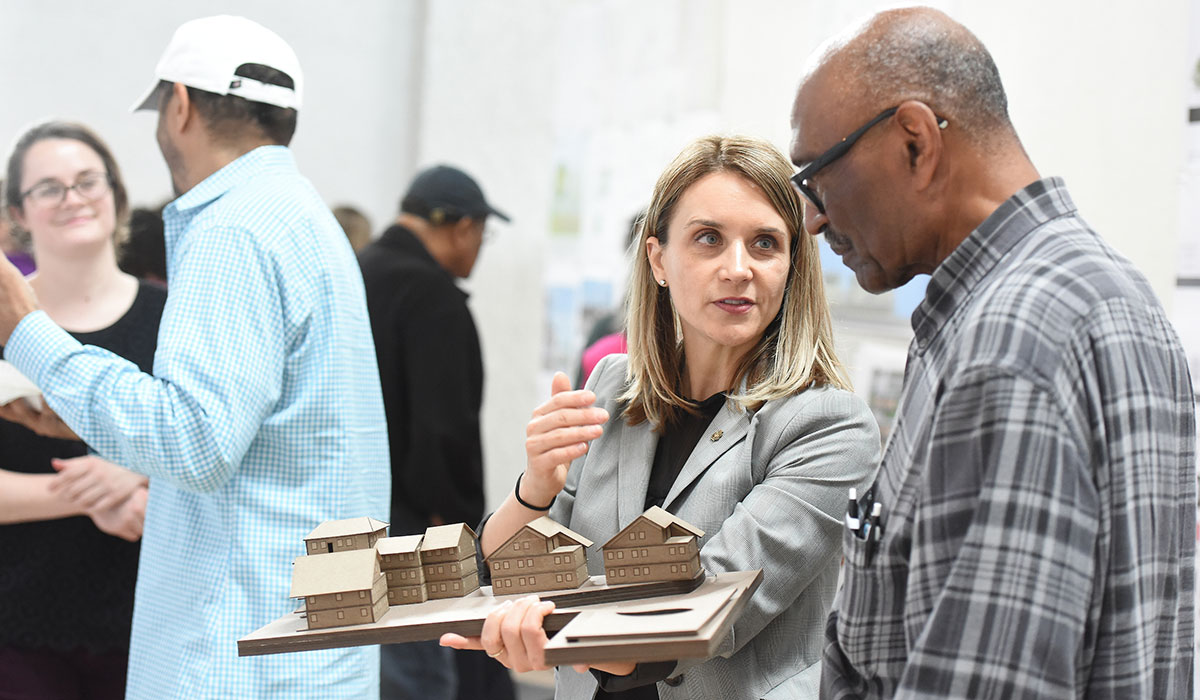

When Pope Francis addressed the United States Congress in fall 2015 and suggested that academic institutions use technology to further social progress, Assistant Professor Patricia Andrasik took his message to heart.
She developed a multi-phase project in Kurdistan — restorative, environmentally sensitive, transitional or RESTive housing — which provides low-cost, green, permanent homes for refugees and internally displaced persons in northern Iraq. The plight of the Iraqi people spoke to Andrasik, whose parents fled the Soviet Bloc for life in America in the 1970s.
"I infuse a thread of ethics into my courses that’s derived from Catholic faith and social justice teachings which have deep roots."
“A lot of these refugees are unable to return to their homes because they have been destroyed,” says Andrasik, whose project is backed by seed funding from Catholic University and the Archdiocese of Erbil in Iraq.
“Rather than placing them in rudimentary, temporary camps, we’re seeking to create a more humanistic environment in which they can live. Proper shelter is one of humanity’s most fundamental and deserved needs.”
Andrasik, who is head of sustainability outreach at the University’s School of Architecture and Planning, visited Iraq for a site analysis to understand both the the cultural and environmental aspects of the region, such as wind and solar analytics and shifting weather conditions, in order to situate the building in the most optimal position and begin designing.
She and her team are working toward the final design phase this year, hoping to achieve a net zero energy building — first through passive design optimization, then using energy-efficient HVAC and building materials.
“We’re working to democratize high-performance building design and bring it down to a more universal level,” says Andrasik. “I infuse a thread of ethics into my courses that’s derived from Catholic faith and social justice teachings which have deep roots. My students are not only learning how to create sustainable architectural solutions, but they’re learning to apply morality and fairness to any and all occupants from a Catholic foundation.”